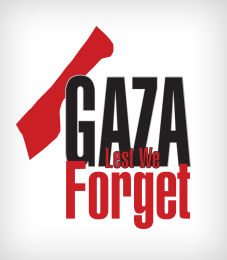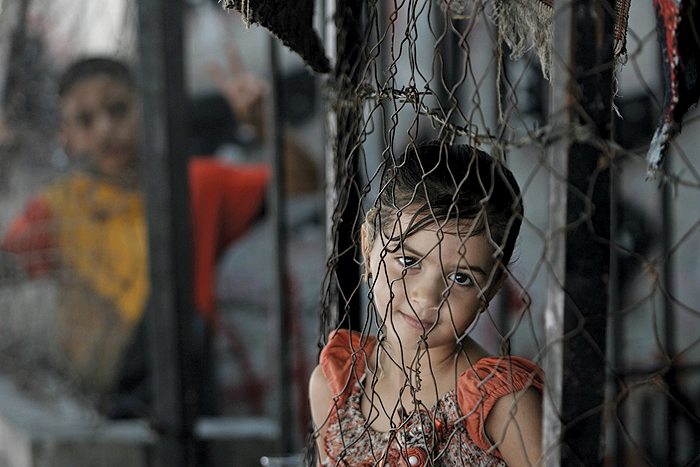
The violence and destruction that have swept Gaza and its 1.8 million people over the last month have shocked and shamed the world. Children below the age of 18 make up half of Gazan society, and they have borne the brunt of the violence, which has left them with deep scars and wounds.
More than 430 children were killed in the first 28 days of the escalation; this is approximately one-third of all civilian deaths. Seventy percent of the children killed were age 12 or under. This conflict has taken a devastating toll on the youngest and most vulnerable, and only a ceasefire will bring an end to the suffering and allow the wounds to begin to heal.
For many children, this is the third military operation that they have experienced. There are 400,000 thousand children in Gaza who need psychosocial support to help them heal from the fear of bombardment and the trauma of injury or loss.
In the first 28 days of the escalation, at least 2,750 Palestinian children were injured. Many of these children will need long-term rehabilitation. Some of them will need treatment that is unavailable in Gaza, and they will have to apply for special permission to leave the coastal territory – unless the closure that hinders the travel of people and goods is brought to an end.
There is no safe place in Gaza. Preliminary assessments show that an estimated 65,000 people have lost their homes. At least 255,000 Gaza residents remain displaced, seeking shelter in schools and in the homes of relatives or friends. Overcrowding is creating a public health crisis, with increased cases of diarrhea, which can be life threatening for the very young. Scabies and lice are also spreading.
At the Carmel School for Boys in Gaza City, hundreds of people sought refuge. Taiseer Khamees Hassan and the 12 members of his family fled from Al Zaytoun neighbourhood and are living in a classroom of the school.
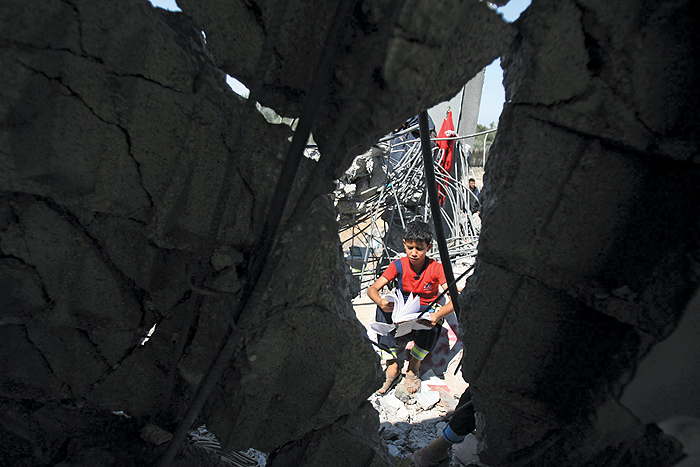
“The bombing goes on day and night,” he says. “We can’t sleep. We always have our children in our laps. What will we do with this life that was created for us? How can I complain that there are no blankets? We need medicine for sick children, medicine for fever, and medicine for diarrhea.”
“I want stability. I want to go back to our home, to our lives. I want to feed my children and watch them grow up,” he goes on.
The overcrowding is aggravated by a shortage of water caused by the inability of technicians to access the eastern parts of Gaza and the critical water infrastructure. Six water-authority personnel were killed while on duty in the first 28 days of fighting, and officials at one point said that they would no longer risk sending their workers out to repair water lines.
Gaza’s only power plant was bombed and put out of commission in July, worsening the existing power outages. During the 72-hour ceasefire from August 5 to 7, some repairs made it possible to provide Gaza with three hours of electricity a day. Power is essential to run pumps that push water into homes, desalination plants, and sewage networks.
Still, drinking water and water to wash are expensive or hard to find. Gaza’s aquifer is contaminated and its water undrinkable without desalination. Thousands of tonnes of waste have accumulated in Gaza’s streets; while some collection has taken place, the final dumping site remains inaccessible. Clean water is the first line of defence against the spread of disease, and without it, Gaza’s children are at risk.
It is UNICEF’s role, responsibility, and moral obligation to ensure that these children have a better future. Whether by providing basic essential humanitarian supplies to children and their families, continuously advocating for the protection of children, or helping children to regain a sense of normality in their abnormal lives, we can restore hope.
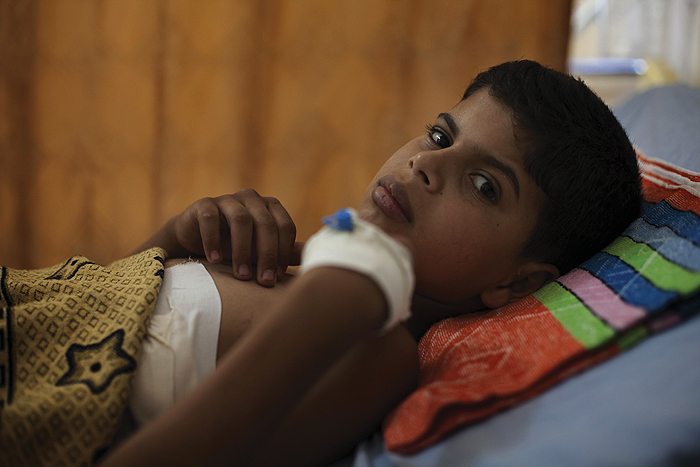
UNICEF is helping to ease the water crisis by providing communal water points – three have been installed and ten more await Israeli approval for entry into Gaza. It is also helping to coordinate the work of the water authorities, repair water tankers, and provide support for critical repairs to infrastructure across Gaza.
♦ “We were playing when suddenly I heard the sound of planes above in the sky,” recalls 12-year-old Mohammed from Gaza.
In partnership with the Palestinian Red Crescent Society (PRCS), UNICEF distributed thousands of adult and baby hygiene kits and jerry cans to tens of thousands of Palestinians in shelters. The agency is also distributing thousands of blankets, sleeping mats, and items of clothing for children and women, many of whom fled with only the clothes on their backs.
In cooperation with the World Food Programme, e-vouchers for water, hygiene products, and food were distributed to families whose homes have been destroyed, and the hope is to support up to 300,000 people.
Through its partnership with PRCS, the Palestinian Centre for Democracy and Conflict Resolution (PCDCR) Ma’an, Tamer, and Al Nayzak, UNICEF is also providing daily specialised psychosocial support and extracurricular activities for thousands of children and adolescents who are seeking shelters in Gaza public schools that are managed by the Ministry of Social Affairs. The PCDCR deployed 160 counsellors to hospitals and shelters from the first days of the escalation to help children cope with the distress.
In working with UNICEF, our partners have demonstrated time and again that their knowledge and expertise can bring about real benefits for children. But this is not enough.
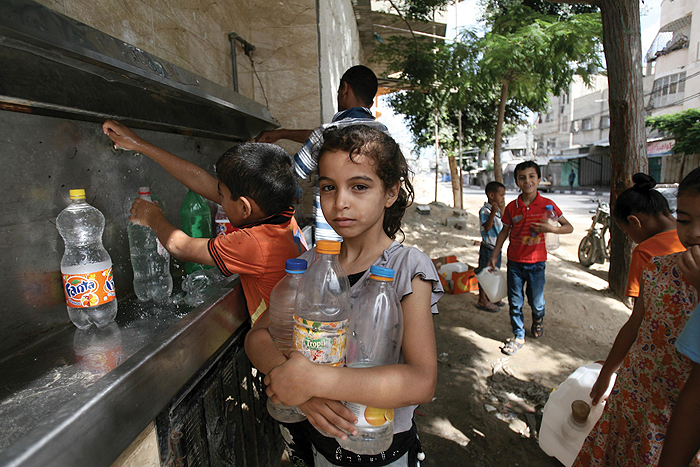
It is high time for those in positions of command or leadership, who have a legal duty in both Israel and Gaza, to exercise maximum restraint and prioritise the protection of children from violence and harm. They also have an obligation to enable humanitarian access and to permit aid workers to assist those in need. Aid workers need to complete search-and-rescue operations, repair critical water and electricity infrastructure, access remote areas, and carry out needs assessments.
For the sake of children, all sides to this conflict must put an end to the violence. Without a just and lasting peace, we cannot guarantee full respect for the rights of children. These children who have lost their childhood deserve our collective support. They have a right to a better childhood.
» June Kunugi is the Special Representative of the United Nations Children’s Fund (UNICEF) in the State of Palestine. Over the past 22 years, she has served in nine countries, advocating and promoting children’s rights.
» Monica Awad is the Communication Specialist who has worked for the past 18 years with UNICEF based in Jerusalem.

